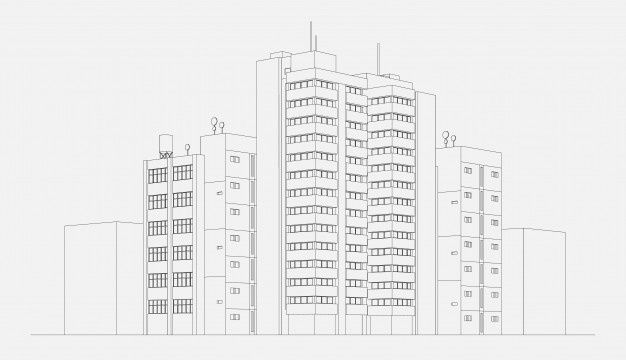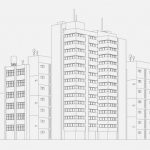You can now use mixed reality technology to virtually view holograms of 3D objects and to interact with them. Using Microsoft HoloLens, which is a lightweight headset, you can view your 3D engineering model holograms in relationship to the real physical world surrounding you. This is a part of the Mixed-Reality Pilot Program, launched by AECOM and Trimble.
Benefits for using mixed reality technology in construction:
● Increase efficiency in project management and understanding
● You, your design team, and your clients can use your respective HoloLens to collaborate simultaneously in the mixed reality environment. You can then explain your structural design in a more visual and direct manner with the holograms. Using the visuals, alongside with your explanations, you can explain why you have chosen the current slab systems and the structural framing. You can point out the relevant stability systems on the hologram to explain to your team how the stability elements are resisting lateral loads. You can also point out the critical and alternative gravity load paths in the structure and explain how the loads transfer to the foundation. That way, your team can use this technology to better understand complex structural engineering concepts in relationship to the design, which can speed up the design process and decrease interpretation errors. You can also use the holograms to show contractors what the design team is proposing, in order to garner accurate understanding of the structure. Each party can easily understand the design, visualize what needs to build, and where to build through the HoloLens, even without the necessary technical knowledge.
● Increase functionality
● Holograms can be changed and moved; therefore if any changes are to be made, they can be made on the spot. Holograms are also controlled by gestures, voice, and gaze, making it more interactive to the user.

Source: www.tekla.com
● Increase time management
● Your team members can also use HoloLens remotely and simultaneously by viewing the same holographic projections in different locations, effectively sharing and collaborating ideas. Travel can be reduced. Updated designs and data can be shared with everyone in the design team.
● Decrease mistakes and misunderstandings for design review
● The 3D projections of the construction model or the design model can be overlayed onto the as-built situation at the real site condition. Consultants and contractors can then use the combined model to interpret any clashes and to remediate any design errors before actually constructing with the design model. There will not be a need to make CAD drawings of the as-built structure just to overlay them on the CAD drawings of construction models. The design team can also determine whether certain equipment can fit in certain rooms, whether structural walls or columns need to be moved, and whether rooms have sufficient headrooms, just by analyzing the holograms. This will enhance accuracy and data interpretation. Since fewer errors will be made during the construction phase and future difficulties or clashes can be foreseen during the design phase, there will be less variation orders from the contractor and less abortive work in the future.
● Decrease traditional CAD drawing work and other visualization efforts
● There will be no need to draw any plans or sections, since the design team, contractors, and the clients can easily visualize all aspects of the structure from the holograms themselves. Everything, including details and sections, can be presented as holograms. There will be no more fuss about drawing presentation, format, clarity, conventions. Moreover, holograms can also be changed by the user, so several schemes can be presented.
● Increase approval rates
● Presenting to authorities can be much easier with holograms. With holograms, you can now convey information about the design much more clearly and at a more visualized level. There will be no more need for reports, posters, samples, etc. Authorities can now visualize the load path, the critical structural elements, and thestructural framing in a three dimensional manner. With authorities understanding the structure more effectively, it is certain that presenting the structure with holograms will bring a faster approval and consent process for construction.

Source: www.themill.com
Mixed reality is transforming the construction industry by storm, with its potential to drastically reduce schedule delays and costs and increase interaction with clients and the design team.


Comments are closed